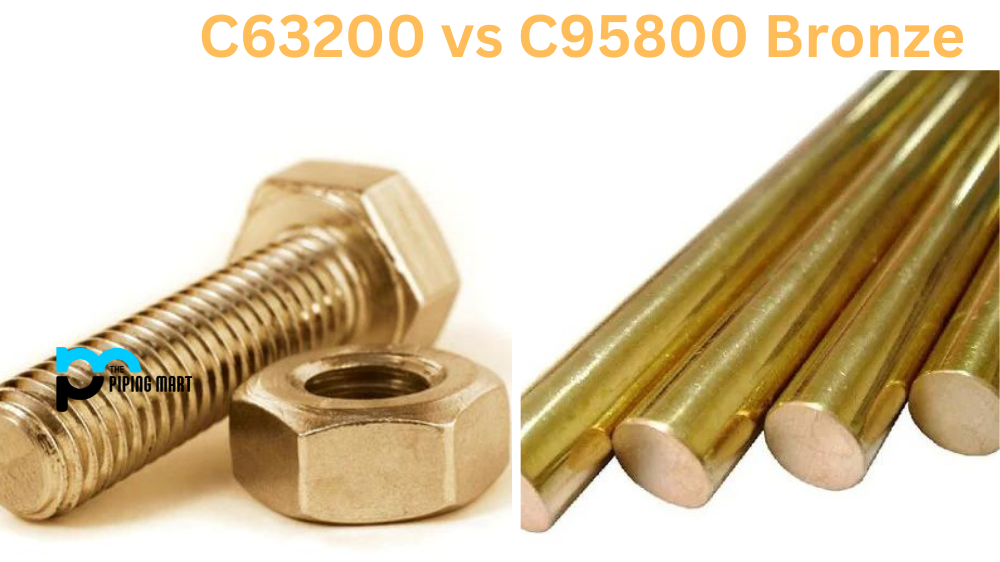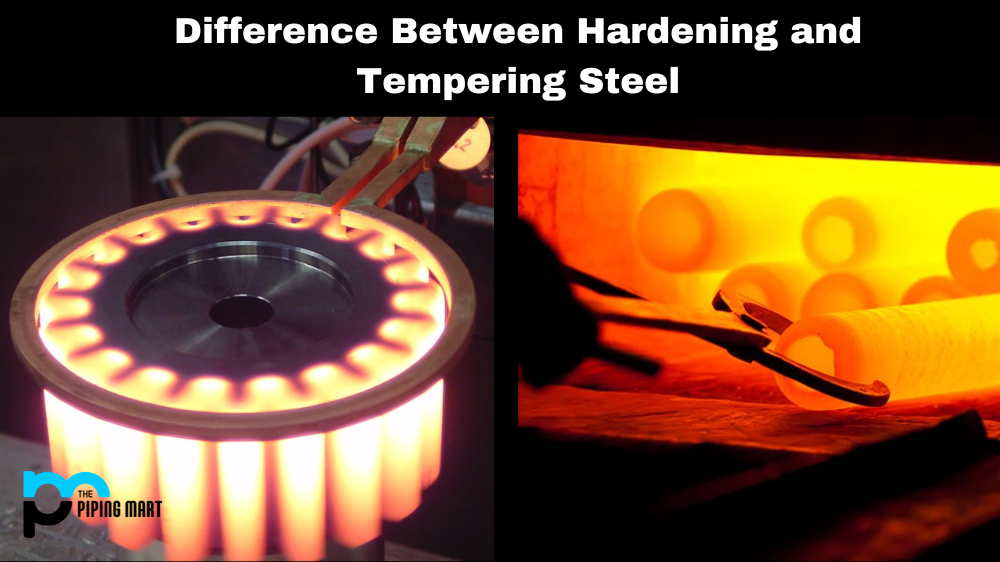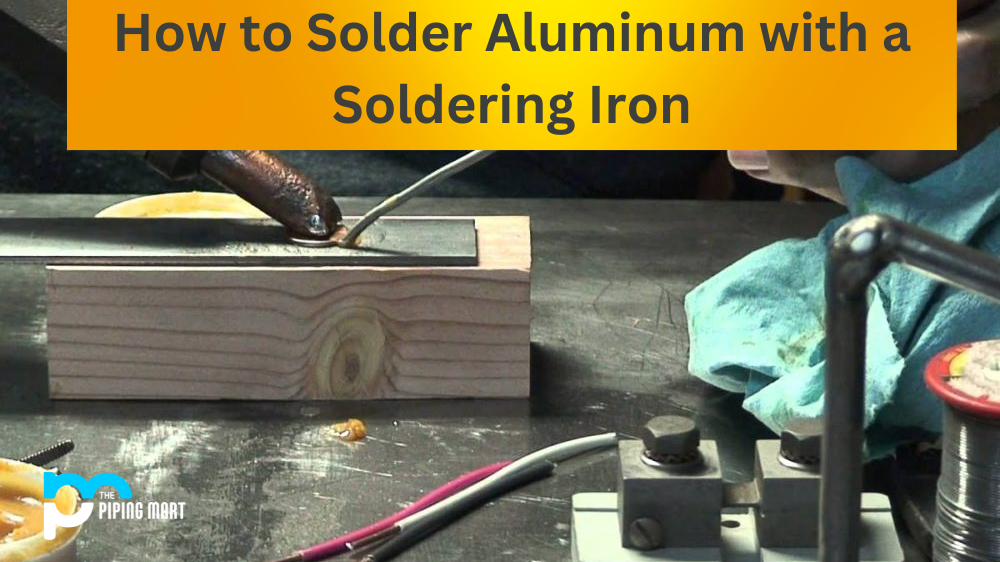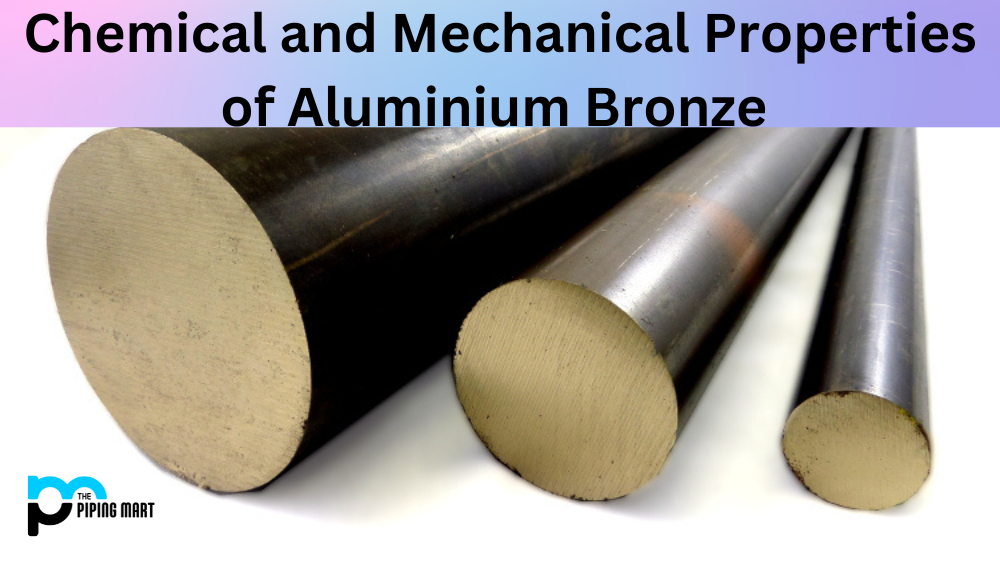Bronze is a timeless metal used in various applications for years. It is famous for its durability, resistance to corrosion, and versatility. However, not all bronze materials are created equal. The two common bronze materials are C63200 and C95800. In this blog post, we will compare and contrast C63200 and C95800 bronze, so you can determine which material is best for your project.
Difference Between C63200 and C95800 Bronze
Composition
C63200 bronze is also known as aluminium bronze. It has a copper content of around 78%, while aluminium makes up around 9%. The remaining percentage comprises iron, nickel, manganese, and other elements. C95800 bronze, nickel aluminium bronze, has a copper content of around 78%, with nickel and aluminium making up about 10% each. The remaining percentage comprises iron, tin, and other elements.
Physical Properties
C63200 and c95800 bronze both have good corrosion resistance and strength. However, c63200 bronze is more ductile than c95800 bronze, which can be stretched or drawn into wire without breaking. C95800 bronze is also more complex than c63200 bronze, making it more resistant to wear and tear.
Strength and Durability
When it comes to strength and durability, C95800 Bronze is the winner. It has higher tensile and yield strength than C63200. Therefore, it is an excellent choice for heavy-duty applications that require high mechanical strength, like marine hardware and bushings. C63200 bronze has lower tensile and yield strength, making it suitable for applications that do not require high mechanical strength.
Corrosion Resistance
C63200 and C95800 bronze exhibit excellent corrosion resistance, even when exposed to harsh environments. However, C95800 is the superior bronze material for corrosion resistance. It is highly resistant to seawater, chlorinated water, and acidic solutions. Thus, it is often used in marine and chemical processing equipment.
Machinability
Another factor to consider when choosing bronze materials is their machinability. C63200 bronze is easy to machine and produces a good surface finish. It is an excellent material for applications that require complex shapes, like valves and pumps. On the other hand, C95800 is more arduous to machine due to its higher nickel content. It requires a skilled machinist to obtain an excellent surface finish.
Uses
C63200 and c95800 bronze are used in various applications due to their unique properties. C63200 bronze is commonly used in plumbing applications due to its high ductility, while c95800 bronze is often used in electrical applications due to its high resistance to wear and tear.
Cost
The cost of the bronze material is another important consideration. C63200 bronze is generally cheaper than C95800 bronze. However, price should be one of many factors to consider when choosing bronze material. Consider their composition, strength, durability, corrosion resistance, and machinability.
Conclusion
In conclusion, C63200 and C95800 bronze materials have their advantages and disadvantages. If your project requires high mechanical strength, C95800 is the bronze material you need. However, if you need a bronze material that is easy to machine and has good corrosion resistance, C63200 is your best bet. Regardless of which material you choose, always work with a reputable supplier to ensure the quality of the bronze material. Considering the abovementioned factors, you can select the best bronze material for your project and achieve optimal results.
Meet Heer, a dynamic and driven writer learning tricks of her trade in the metal industry. With a background in Digital Marketing, Heer brings a unique perspective to her writing, sharing valuable insights. Apart from blogging she like reading and hiking.




